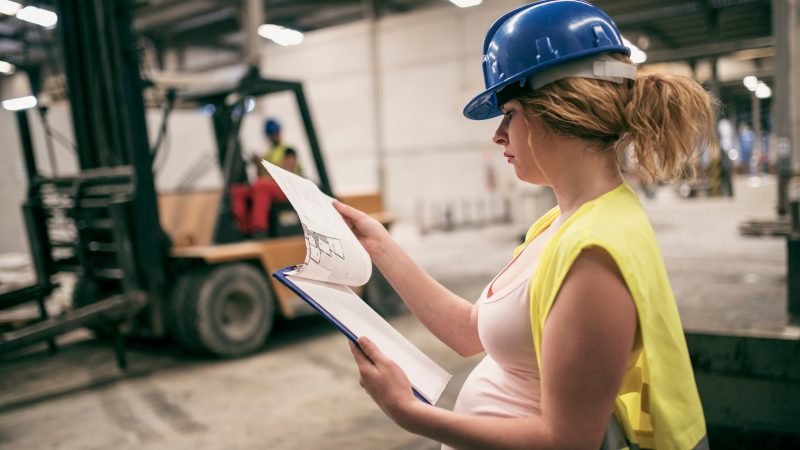
If Prime Minister Rishi Sunak’s ‘stop the boats‘ slogan or the latest anti-migration manifesto from the ‘New Conservatives‘ are anything to go by, the Conservatives want an election campaign dominated by fear.
Fear of the future, fear of Labour, fear of change, and fear of immigration. In the absence of any notable achievements over 13 years, all they have to offer is fear. They have talked tough on immigration and asylum, but both policies are in tatters – unworkable, immoral and riding roughshod over international obligations.
Labour cannot ignore people’s concerns, and should put forward policy solutions that will work, rooted in the evidence. Our aim as immigration and skills campaigners is to correct the Tory lies, and to offer hope that the false debate between the two policy areas can be reconciled into a positive, hopeful vision for the country.
Immigration policy is a litmus test for our readiness to govern. Britain needs an immigration policy which is rational, fair and efficient – anchored in the dignity of all and the skills needed by our economy. Far from being a threat to our economic well-being, people coming to the UK to live and work add to our prosperity in all areas of life. The Tories want to stoke up xenophobia and distrust of migrants; Labour must show the true picture, one of contributing to the rich tapestry of our national life. Indeed, the story of Britain is a story of people arriving here, settling here, building our country and becoming our friends and family.
There is no conflict between a measured and fair immigration system and a national effort to give British workers new skills to do the new jobs in the green economy. To transform Britain to the high-skills, high-wage, post-carbon economy that Rachel Reeves has spoken about, we need a skills revolution and we need young, ambitious workers to come to the UK. They are not in contradiction.
The Tories have abjectly failed on both immigration and skills. They are making the UK a less attractive destination for highly-skilled scientists, engineers, doctors or entrepreneurs, and simultaneously failing to provide British workers with skills. For example, their apprenticeship policy is a disaster, with over £2bn of apprenticeship levy funds returned to the Treasury since 2017. We could be training more plumbers, electricians, builders, and insulation specialists to create energy-efficient homes and offices, but instead ministers are fighting among themselves.
What should a Labour immigration policy look like? It should be rooted in two imperatives: our enduring values of fairness and equality, treating each ‘case’ with compassion and empathy. And we need to consider the long-term needs of the economy, and a population which is growing older and in need of huge investment in social care.
One practical measure, as recommended in the Labour Skills Report is to co-ordinate and link the work of the government’s Migration Advisory Service with the new Skills England body to drive economic growth. This would provide the government with a clear perspective on the delivery of skills training and apprenticeships through coordination with key stakeholders, and at the same time an appreciation of how skills gaps could be addressed by workers coming to the UK.
We welcome the announcement that Labour are looking at scrapping the 20% salary discount for shortage occupations. Paying migrant workers potentially a fifth less for doing the same work as workers already here is divisive and undermines wages. It’s a step in the right direction in building more fairness into our jobs market. And on visas we should ensure they are issued in time giving employers and employees the notice they need for effective planning.
Another sensible move would be to allow asylum seekers to work after six months. The current ban on asylum seekers working is self-defeating. It is bad news for the individuals (many of whom are highly-skilled), and it makes no sense in an economy where there are job vacancies in hospitality, agriculture, and other sectors.
Many asylum seekers, dealing with little support and the cost of living crisis too, wait in limbo for months, if not years, for a decision. Often with much needed skills and desperate to work, we are wasting their potential and putting them at risk of exploitation.
Analysis from the National Institute of Economic and Social Research (NIESR) shows that allowing asylum seekers waiting longer than six months to work could save the government a total of £4.4bn each year, increase tax revenue by £880mn each year and add £1bn to the UK’s economy. In the face of such obvious advantages to the British economy, we would question Tory ministers’ motives for continuing to ban work for asylum seekers, and wonder if it is simply punitive.
The stories of every migrant family are different – the Huguenots seeking refuge from religious persecution, the Irish escaping starvation, the Jews fleeing pogroms, the Windrush generation building the post-war New Britain, and even the stories of our own families.
But the unifying characteristic is a story of the drive, often in the face of terrible obstacles, to build a better life. Labour’s task is to cement this narrative of hard work and ambition to a broader story of a better Britain, with green jobs in every part of the country, and opportunities for all. Let hope conquer fear.




More from LabourList
‘Council Tax shouldn’t punish those who have the least or those we owe the most’
Two-thirds of Labour members say government has made too many policy U-turns, poll reveals
‘Two states, one future: five steps on the path to peace for Israelis and Palestinians’